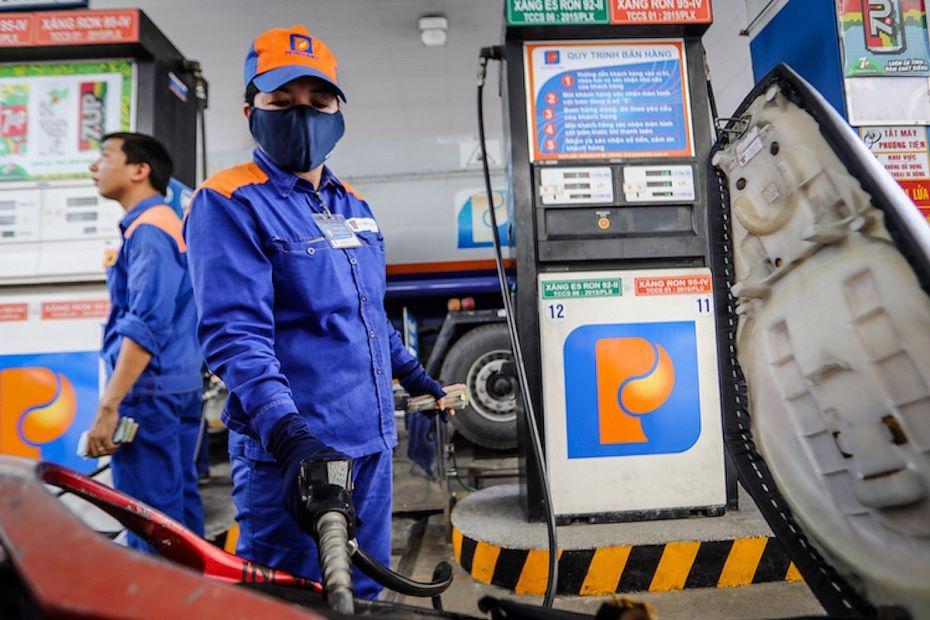NA deputies call for lower taxes to curb petrol prices
Experts said Vietnam should build up the national reserve, which will enhance the country’s resilience against the volatile prices in the global market.
National Assembly deputies called for the Government to further cut taxes to keep petrol prices from rising and causing a domino effect on other commodities.
| A petrol station in Hanoi. Photo: The Hanoi Times |
Yesterday, the retail fuel prices in the domestic market reach a new record at over VND31,000 (US$1.34) per liter of RON95, while the biofuel E5-RON92 also hit VND30,230 ($1.3) per liter. This marked the fifth consecutive rise in the price of petrol in less than two months.
During a discussion session on June 1, Deputy Tran Hoang Ngan from Ho Chi Minh City said controlling petrol prices is among the key input in efforts to stabilize the macroeconomy and keep the inflation rate below the 4% target.
Since early 2022, Vietnam’s retail fuel prices witnessed 10 rises and three downs. To address the situation, the Government has decided to halve the environmental protection tax on fuels from April until the end of 2022, but this proved futile amid skyrocketing fuel prices on the global market.
“In case the prices keep rising, it would have significant impacts on people’s lives, which have already been difficult after two years of the pandemic. For businesses, they would face higher operational costs from rising logistics and transportation fees,” Ngan said.
Sharing the view, Deputy Hoang Van Cuong from Hanoi and others called for the Government to take drastic steps in lowering environmental protection tax, excise tax, and value-added tax on petrol products.
At present, fuels are taxed at a 10% rate of VAT and excise duty.
According to Cuong, a lower tax rate may cause a decline in the state budget revenue, but Vietnam may offset such an impact by further exporting crude oil at a time of rising global fuel prices.
“As global prices are at a high level, rising production output not only brings benefit economically but also creates a stable source of supply for the local market,” Cuong said.
Meanwhile, Deputy Ngan noted Vietnam should sacrifice short-term benefits for long-term gain.
Necessity to adhere to the market mechanism
Minister of Industry and Trade (MoIT) Nguyen Hong Duong said Vietnam’s petrol prices are still lower compared to the global average and those in the region, which is posing a high risk of petrol smuggling to neighboring countries.
Data from the MoIT suggested Vietnam’s petrol prices are the 86th most expensive out of 170 countries and territories and remained below countries such as China, Thailand, and South Korea.
Petrol prices in the world market averaged $1.41 per liter on May 30, according to GasPetrolPrices, while in Vietnam they are at $1.34. Meanwhile, petrol prices in neighboring countries are higher than in Vietnam, such as Laos ($1.65), Cambodia ($1.4), Thailand ($1.5), and Singapore ($2.2).
While acknowledging rising petrol prices may put more burden on production and business activities, Dien argued lowering the prices may put Vietnam at risk of the anti-dumping probe, or even being accused of currency manipulation, given the country is a partner of many free trade agreements.
Dien, however, noted the MoIT would take up all measures available, including taxes, to help keep petrol prices from rising.
“The Government may consider offering social welfare support for vulnerable groups in case prices go too high,” he said.
Tran Van Lam, a member of the National Assembly’s Finance-Budget Committee, said controlling petrol prices do not mean keeping the prices at a low base.
He added a huge gap between the domestic and world prices would lead to smuggling, not to mention its impacts on the competitiveness factor in a free market.
“Vietnam’s economy may not be considered to operate under the market mechanism and face legal risks,” Lam said.
For a long-term solution, Deputy Cuong stressed the significance to build up a national reserve, which helps enhance the country’s resilience against the volatile prices in the global market.
“This is of significance to the national energy security,” he concluded.
During the first six months of 2022, Hanoi imported petroleum products worth nearly US$3 billion for domestic use, representing 2.8-fold increase against the same period of last year. Rising petrol prices have contributed to the city’s high CPI growth rate during the six-month period, expanding by 3.25% year on year. |











